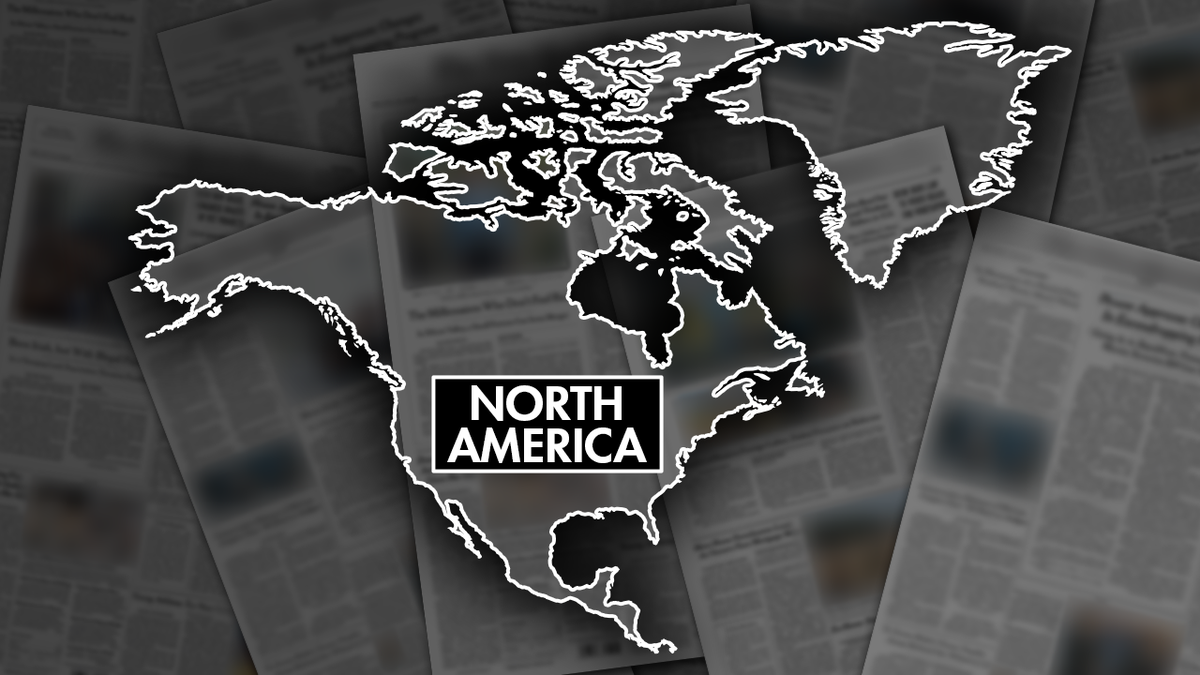Fox News Flash top headlines for February 21
Fox News Flash top headlines are here. Check out what's clicking on Foxnews.com.
Activists demanded Tuesday that Jamaica repeal a colonial-era law criminalizing gay sex, noting that the government still has not heeded a regional rights panel's recommendation two years ago to do so.
The call comes as a growing number of islands in the conservative Caribbean region strike down similar but rarely invoked laws that often seek life sentences and hard labor. Jamaica has resisted such a repeal, and is considered the Caribbean nation most hostile toward gay people.
"Jamaica is really an outlier," said Devon Matthews with Rainbow Railroad, a Canadian group that helps members of the LGBTQ community escape violence. "The situation has gotten significantly worse in the last number of years."
Rainbow Railroad released a report Tuesday along with Human Dignity Trust, a U.K. nonprofit legal organization, that found the LGBTQ community in Jamaica faces "horrific violence, discrimination and persecution and lack(s) the most basic protections under the law."
Since 2019, Rainbow Railroad has seen an increase in calls for help from gay people in Jamaica, with 411 violent incidents reported last year, compared with 377 the previous year, Matthews said in a phone interview.
JAMAICAN PRIME MINISTER ANDREW HOLNESS WILL NOT FACE CORRUPTION CHARGES IN CONFLICT OF INTEREST CASE
"The data doesn’t even do justice to the degree of violence that we’re seeing," she said. "It’s truly horrifying."
In February 2021, the Inter-American Commission on Human Rights found that Jamaica’s government was violating a right to privacy, equal protection, humane treatment and freedom of movement involving two members of the island’s LGBTQ community who were forced to flee Jamaica.
One defendant, Gareth Henry, is a gay man who was beaten several times by Jamaica police in front of angry crowds and now lives as a refugee in Canada along with his mother, sister and other relatives. The other defendant, Simone Edwards, a lesbian woman, obtained asylum in the Netherlands after she was shot twice in anti-gay violence, according to Human Dignity Trust.
The Inter-American Commission on Human Rights, which is part of the Organization of American States, recommended at the time that Jamaica repeal its so-called anti-buggery law. This has not yet happened.
"A lot of beautiful people lost in this violence could have been protected if the state had stepped up," Matthews said.

Activists have demanded Jamaica to repeal the anti-sodomy laws during violence within the country against gay people.
Jamaica’s government has argued that it doesn’t enforce its 1864 anti-sodomy laws, but activists say having them remain on the books encourages homophobia and violent acts against the gay community in the religious country of some 2.8 million people.
Matthews said the laws sometimes are enforced by communities and families even if they’re not enforced at a state level.
A spokesperson for the office of Jamaica’s prime minister did not immediately return a message for comment.
And while it’s legal for women in Jamaica to engage in same-sex intimacy, Rainbow Railroad reported that it’s not uncommon for their families to organize so-called "corrective rapes" of them or their partner.
Activists also note that gay Jamaicans struggle to access jobs, medical care, education and housing.
CLICK HERE TO GET THE FOX NEWS APP
Similar discrimination was reported in other Caribbean islands that have since repealed same-sex laws, with Barbados doing so in December, following in the steps of Antigua & Barbuda and St. Kitts and Nevis. But such laws remain on the books in six other countries in the Americas: Jamaica, Guyana, Grenada, Dominica, St. Vincent and the Grenadines.









































